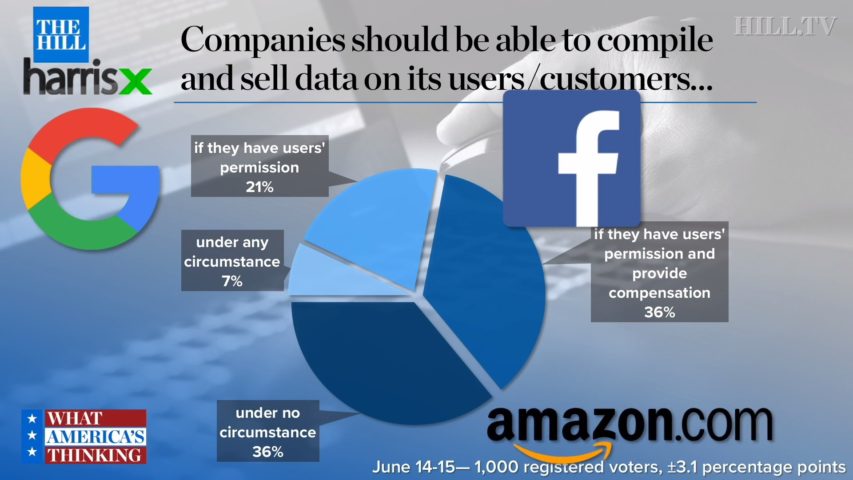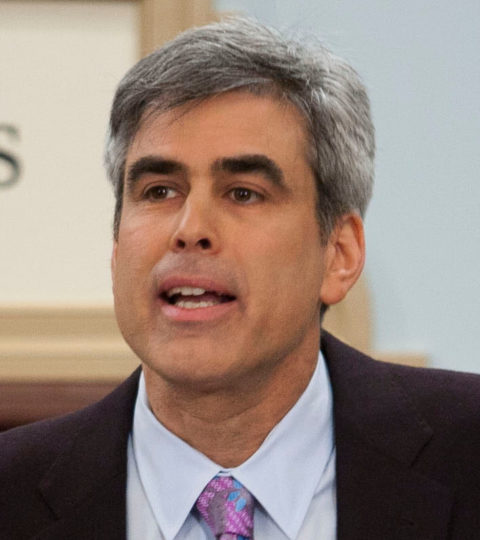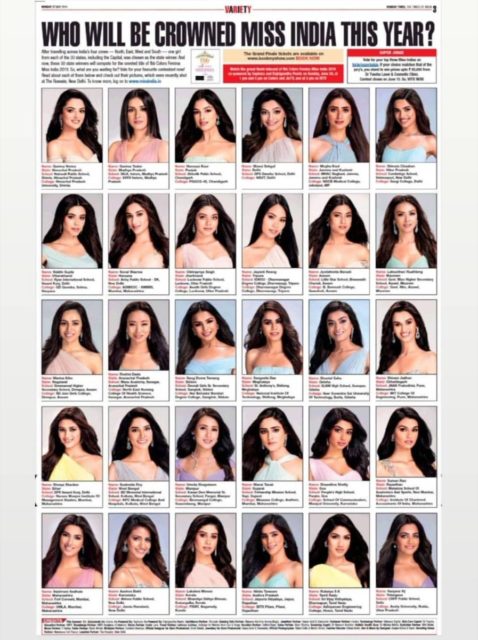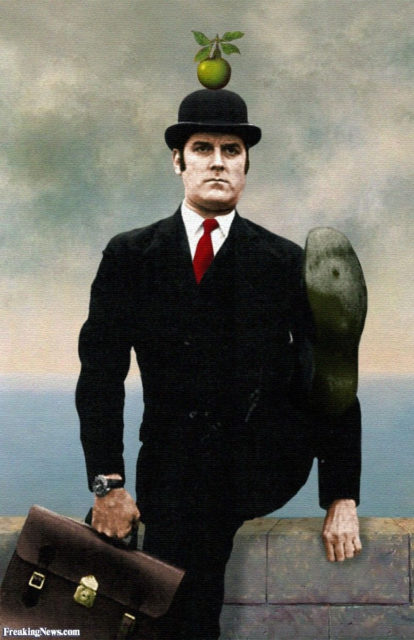Ancient Gypsy curse: may you get what you wish for
Modern Gypsy curse: may you one day trend on TwitterDavid “Iowahawk” Burge, Twitter, 2016-08-16.
July 4, 2019
QotD: Updating traditional curses
June 29, 2019
QotD: Blogging versus social media
Even the “blogosphere” of the early 21st century, in which independently run blog sites posted items on news and responded both to Big Media stories and to each other was more like traditional media in some respects than like Usenet or social media. To read content on blogs, readers had to go there. To interact, bloggers had to read each other’s sites and decide to post a response, generally with a link back to the post they were replying to. If you didn’t like a blog you could just ignore it. A story that spread like wildfire through the blogosphere still did so over the better part of a day, not over minutes, and it was typically pretty easy to find the original item and get context, something the culture of blogging encouraged… In addition, a story’s spreading required at least a modicum of actual thought and consideration on the part of bloggers, who were also constrained, to a greater or lesser degree, by considerations of reputation. Some blogs served as trusted nodes on the blogosphere, and many other bloggers would be reluctant to run with a story that the trusted nodes didn’t believe. In engineering parlance, the early blogosphere was a “loosely coupled” system, one where changes in one part were not immediately or directly transmitted to others. Loosely coupled systems tend to be resilient, and not very subject to systemic failures, because what happens in one part of the system affects other parts only weakly and slowly. Tightly coupled systems, on the other hand, where changes affecting one node swiftly affect others, are prone to cascading failures… [On Twitter,] little to no thought is required, and in practice very few people even follow the link (if there is one) to “read the whole thing”.
Glenn “Instapundit” Reynolds, The Social Media Upheaval, 2019. (link goes to Althouse, who posted this quote based on the Kindle edition)
June 26, 2019
Social media giants can be publisher or platform, but not both
At Ace of Spades H.Q., Ace explains why Facebook, Google, and the other social media companies have been playing fast and loose with the rules, sometimes using the rules that apply to publishers and sometimes the ones that apply to platforms, depending on their whim:
Only a speaker or publisher of claimed defamatory content can be sued.
Not being a speaker or publisher of a defamatory statement gives you total immunity from suit. You’re just a guy, you had nothing to do with the tort alleged.
Section 230 [of the Community Decency Act] specifically says that “neutral content platforms” shall not be deemed to be the “speaker or publisher” of a claimed defamatory statement made by a third party using their service — hence, the complete immunity from suit. You can’t be sued for something someone else said, obviously.
Now newspapers can be sued for the defamatory remarks of, say, an interview subject. They are publishers of that defamatory statement — they chose to publish it. The interview subject made the statement, but then they chose to publish it themselves, becoming another “speaker” of the defamation.
Now, “neutral content platforms” are never considered “speakers” of third-party defamations (or any third-party crime involving speech, such as offering to sell contraband or conspiring to commit a crime). But a newspaper or media company — or this blog — could be.
The corporate cucks claim that you cannot put restrictions on Google, Facebook, or Twitter as regards their right to censor opinions they disagree with because that constitutes “compelled speech.” You’re compelling them to speak things they do not believe, the cucks’ argument goes.
But… section 230 states that, as a legal matter, they are not considered the “speakers” of any statement made on their “neutral content platforms.”
So which is it? Are they the speakers of these words — in which case, like a newspaper or tv station, they’d have every right to exercise editorial judgment and decide what they wish their company to say — or are they not the speakers of these words, which is their claim whenever someone tries to sue them?
As it stands, they are speakers when it comes to their power to block people from speaking on their platforms — and thus can indulge in the vice of censorship — but not speakers when it comes to people suing them for what other people said on their platforms.
Choose one or the other: Either you are a speaker of other people’s words or you’re not. You can’t forever choose one and then the other when it’s in your interest to have the Clown Nose On or the Clown Nose Off.
June 23, 2019
They managed to get 7% approval? That’s surprising
Michael van der Galien reports on a recent poll of registered voters in the United States that will not be happy reading for many social media companies:

Only seven percent are happy with social media companies being able to harvest and sell data without permission or compensation.
Chart from Hill.TV – https://thehill.com/hilltv/what-americas-thinking/449576-poll-voters-overwhelmingly-want-more-regulations-on-personal
Thirty-six percent of those polled say there is no scenario imaginable to them in which it’s OK for companies to collect and sell such information. Read that again: one-third of those asked always oppose companies like Facebook, Twitter, Amazon, and Google collecting and selling such data. Another 36% said they can support the collection and selling of personal data if the individuals involved are compensated for it.
Only 21% say they believe companies should be able to collect and sell personal information of users if they’ve expressly asked for permission. As for selling and collecting it without permission:
Eight percent of Republicans and also Democratic respondents said that firms should be allowed to sell information without permission. Seven percent of independents agreed.
In other words, this is a bipartisan issue, which makes perfect sense. After all, this issue affects all of us, whether we are conservative or liberal.
Matthew Sheffield has more for Hill.TV:
On Monday, the Washington Post reported that the Federal Trade Commission has been investigating Google’s YouTube division for tracking child users, a practice allegedly in violation of a 1998 law which forbids tracking and targeting children under 13 years of age.
The poll found broad bipartisan agreement on what companies should be allowed to do with consumer data. Eight percent of Republicans and also Democratic respondents said that firms should be allowed to sell information without permission. Seven percent of independents agreed.
About the same number of Democrats and Republicans said that companies should not be able to sell data under any circumstance. Thirty-three percent of GOP respondents took this position, as did 35 percent of Democrats. Forty percent of independents agreed.
Younger voters were more willing to allow companies to sell consumer data than older ones although it was still a minority position. Fourteen percent of respondents who were between 18 and 34 said they supported letting companies compile and sell personal data without permission while only 2 percent of those 65 and above agreed.
June 20, 2019
The Centre for International Governance Innovation and the Transatlantic Commission on Elections Integrity for the Alliance of Democracies Federation
Did you read that headline? I certainly didn’t. And I wrote copy’n’pasted it. Have you ever heard of either of those organizational entities? I hadn’t until I read Colby Cosh’s article.
A wire story by The Canadian Press’s Joan Bryden arrives over the transom. Let me quote briefly from Bryden’s copy, as an exercise in describing how news sausage is sometimes ground. “An international report says Canada has taken ‘commendable’ steps to safeguard this fall’s federal election from foreign interference. But the report says this country needs to do more to regulate social media giants and should impose ‘major sanctions’ on those that fail to control fake news and other forms of disinformation on their platforms.”
An international report says Canada is vulnerable to fake news! Food for thought. But as I was mulling over this dread warning about sensationalistic information from questionable sources, a skeptical question came to mind: what is “an international report” exactly?
Bryden goes on to tell us, sort of: “The report,” she writes, “is part of a series of assessments conducted by the Centre for International Governance Innovation and the Transatlantic Commission on Elections Integrity for the Alliance of Democracies Federation.” Show of hands: how many of you found it possible to read that sentence without falling asleep? Don’t worry, you weren’t meant to read it — just to absorb its general miasma of seriousness.
Ottawans will know the Centre for International Governance Innovation: it is, essentially, a big pile of Jim Balsillie’s money, and ours. There is a CIGI Campus in Waterloo, Ont., built by Balsillie with matching funds from the provincial and federal governments, that contains the CIGI think-tank and collects rent from the U of W and Wilfrid Laurier U. The Transatlantic Commission on Election Integrity is another think-tank, an international one established amidst post-Trump panic by a range of institutions that includes Microsoft, BMW and other global companies and nonprofits.
Bill Gates didn’t write the “international report.” The report says it was “submitted to TCEI by Allan Rock, TCEI member.” Mr. Rock was, you may recall, a key figure in Jean Chrétien’s cabinet and then president of the University of Ottawa. He “submitted” the report … but did he write it? What the text says is that research and writing done by two University of Ottawa law students “were essential to the preparation of this report … Allan Rock expresses his sincere appreciation for their excellent work.”
So, yeah: it’s a jeremiad against fake news that is pretty much just a long op-ed written on contract by two underpaid young Canadians. After a few impressive-sounding (and foreign-funded) brand names are tacked on, this ends up in your newspaper as a distinguished “international report” justifying draconian regulation of social media.
The “news sausage” comment is a reference to a quote frequently (but apparently mistakenly) attributed to German Chancellor Otto von Bismarck, that laws and sausages are things you should never watch being made.
June 19, 2019
BOHICA! Section 13 threatens to come back to life
Mark Steyn recently testified before the parliamentary Justice and Human Rights Committee recently. They carefully avoided having the video cameras turned on during his testimony and that of two other civil libertarian speakers. The committee clearly ignored everything that was said:

Lindsay Shepherd, Mark Steyn, and John Robson prepare to give testimony to the Parliamentary Justice and Human Rights Committee, June 2019.
Photo via Andrew Lawton.
“No monarch, no parliament, no government, and certainly no bureaucratic agency operating the pseudo-law of section 13 can claim jurisdiction over my right to think freely, to read freely, to speak freely and to argue freely.”
Those were the closing words of Mark Steyn’s testimony before parliamentarians on the Canadian House of Commons’ so-called justice and human rights committee just two weeks ago.
His call fell on deaf ears.
Yesterday, the justice committee tabled its report on “online hate” in Canada’s parliament.
The report laid out nine recommendations, one of which being that government should provide a “civil remedy for those who assert that their human rights have been violated under the Canadian Human Rights Act, irrespective of whether that violation happens online, in person, or in traditional print format. This remedy could take the form of reinstating the former section 13 of the Canadian Human Rights Act, or implementing a provision analogous to the previous section 13 within the Canadian Human Rights Act, which accounts for the prevalence of hatred on social media.”
Once you strip away the mumbo jumbo bureaucrat-speak in there, it means the Canadian Liberals wish not only to revive section 13 from the dead, but to give it untold powers to force social media companies to purge online speech from whomever the government deems the hatemongers du jour.
This is apparent in another recommendation, that lawmakers “establish requirements for online platforms and Internet service providers with regards to how they monitor and address incidents of hate speech, and the need to remove all posts that would constitute online hatred in a timely manner.”
Of course there’s no provided definition for what “hate speech” is in the context of this desired law. Just a promise to figure it out later.
Before section 13’s repeal under the previous Conservative government, there was a quasi-judicial body to decide if online posts were sufficiently “likely to expose a person or persons to hatred or contempt.” Those found guilty of violating this provision were slapped with a fine or gag order, while having none of the protections afforded to criminal defendants throughout the process.
This regime seems like child’s play compared to what’s proposed in this report – elimination of online speech by social media giants under the threat of government penalty. Not sure which I like better, actually: the opaque, unappealable hammer or the sham tribunal that at least pretends to give you a shot at beating the rap.
June 3, 2019
The “Miss India” controversy
The Times of India published an image of the Miss India competition finalists that drew heavy condemnation on social media:
Tim Worstall explains at least some of the reasons why these young women don’t seem to resemble the majority of Indians:
To start with a question – doesn’t anyone read Jane Austen any more? For that is all that is needed to understand why all the finalists in this year’s Miss India contest seem to have the same rather pale and white complexion. Certainly, rather paler and whiter than the general run of the mill complexion seen across India.
We can also offer a Marxist interpretation – it’s a class thing, innit?
[…]
Yes, India does have that caste issue, it is true that higher castes are generally associated with lighter skins colours, lower with darker. There are even those who would insist that the caste system exists in order to maintain that dominance of the fairer skinned over the darker, something that has worked well in doing so for millennia.
And yet, Jane Austen. Apologies, the various heroines blur into a montage of Emma Thompson and Keira Knightley for me but then that’s just an expression of my masculinity, not bothering with chick flicks. But there is a scene where the sisters are fussing over their bonnets as they go out for a walk. Be careful – Lizzie? – or you might get freckles and then what man would want you? As one blessed with such melanin enhancement myself, finding it most attractive in others, why this obsession? Because a porcelain complexion was a signifier of social status.
Not because of the racial obsessions of the times – we are talking of an era when a thoroughly dark skin could make you a chattel slave, a white one not. But because a porcelain white skin was a signifier of social status therefore a porcelain white skin was a sign of social status.
70 to 80 percent of the population worked hard, outside. That meant being tanned. Only the rich did not need to do so. Thus only the rich were that pasty white which is the fate of the English gene pool when consistently out of the Sun. White was a symbol of social status not because it was white but because it meant “not farm labour”.
Of course, in the English and later European context, that dynamic started to change during the Industrial Revolution, as more and more “working class” work was done indoors and pale skin slowly declined as an indicator of wealth and privilege and instead tanned skin assumed that role (only the wealthy could waste time being outdoors, in the sun).
So, what will happen in India? Presently the country is what, still 50% of the people labouring in the fields? Something we know is declining as a portion and we expect to get to something like the English situation in a few decades, no? 6 to 8% compound GDP growth rates cause that sort of thing. 98% of all will be working under fluorescent strip lights, not under the Sun. Having both the leisure and the money to gain a tan will be a marker of social status and thus will be desired.
As to when this happens the switch really didn’t take that much time in England. Certainly in the 1930s that paleness was still highly desired. By the 1960s it was changing. Today tanning lotions sell in vast volumes, skin whiteners to the indigene English not a single drop.
When will we know the change is happening in India? It’ll not be airbrushed and photoshopped pictures of Miss India contestants that are that first marker. The day someone opens a tanning salon in an Indian urban centre and doesn’t immediately go bust will be that signifier that the great change is under way.
June 2, 2019
Andrew Heaton defends Basil Fawlty John Cleese
In his latest newsletter (subscribe here), Andrew Heaton takes up the cudgels to defend John Cleese against accusations of racism, sexism, white supremacy, homophobia, transphobia, Islamophobia, etc., etc. and suggests that the answer is that he’s “just old”:
First, “Some years ago I opined that London was not really an English city anymore.” Well, he’s right. London is geographically English, but other than its physical proximity to Surrey, it’s not English — it’s global. Its last census reports that 36.7% of its denizens are foreign-born. About 45% of the people who live there are White British (Welsh, Irish, English, Scottish). Which is to say, less than half of London is English [a lot less than half — the Welsh, Irish and “porridge wogs” don’t appreciate being called “English”, nearly as much as Canadians don’t like being called “Americans”]. The rest are a mélange of Europeans, non-Europeans, first and second generation immigrants, Klingons, Vulcans, Wookis, and folks from elsewhere in the Commonwealth and/or Narnia.
It’s a global city, like New York. It is richly diverse and cosmopolitan, which is a strength and draw to millions of people who live there. However I will argue that it’s difficult to be ethnically diverse and cosmopolitan while simultaneously being homogeneously English. Mutually exclusive, in fact.
Although to be fair, people aren’t mad at Cleese for observing that London isn’t English, they’re mad because he wishes it were. Cleese appears to prefer Englishness over multiculturalism. (Note the distinction between “culture” and “race.” Following the media storm, he tweeted, “… I prefer cultures that do not tolerate female genital mutilation. Will this will be considered racist by all those who hover, eagerly hoping that someone will offend them – on someone else’s behalf, naturally.” [Sic.])
My read on the situation is that Cleese is not racist, he’s old. What I mean by that is: life is always in flux, cities are by nature dynamic, society is fluid. People tend to want things to stay static, and they don’t, and that’s irksome for many, particularly as they grow elderly and nostalgic. I question when London was last really “English,” given that it was the imperial capital of half the globe well before he was born, and no doubt had several pockets of Indians and Jamaicans and Vulcans living there by the time he showed up.
All the same, is John Cleese allowed to prefer English over polyglot? Because I think that’s the root heresy at work here: saying that English culture might be superior to some others, and preferring it to them.
New York City is far, far more diverse and multicultural than, say, Portland, Oregon. Portland is so overwhelmingly white that it’s basically a giant bleach commercial with some craft breweries and street buskers thrown in. Ethnicity aside, can Portlanders prefer their cultural homogeneity over the vastly more polyglot city of Houston? So long as people agree that immigration is positive and we should be neighborly and welcoming to newcomers, I’m disinclined to hound people for their personal preferences.
I don’t know whether or not John Cleese meets that threshold. We know that he favored Brexit. I suspect, based on scattershot Cleese musings, that wants a Britain which is open and welcoming to foreigners, but that he would also like them to become polite, uptight, tea-drinking gardeners once they’ve moved there.
I could be wrong. I don’t know the depths of John Cleese’s heart, and whether or not his pro-Brexit stance comes from hatred of distant bureacurats (good) or dislike of foreigners and immigrants (bad). I suspect most of the people shouting at him on Twitter have no idea either.
Which is my main and final point. Maybe a single isolated tweet isn’t sufficient information to psychically intuit whether someone is a bigot or not? We’re all on the same page here: bigotry is bad. Don’t be a racist. Don’t be a homophobe. But if we’re going to champion the idea that the worst non-criminal thing you can be in our culture is a bigot, then we should also be at least a tad reserved about passing out scarlet letters just because there’s a slow news day and we spot a fun Twitter pile-on to get worked up about.
A rare word in favour of free speech from the PM
Chris Selley on an unusually free-speech oriented comment from Justin Trudeau, who is more commonly heard making threats to shut down speech he doesn’t like:
Prime Minister Justin Trudeau said something interesting this past week, in a conversation with Vox journalist Liz Plank at the Open Government Partnership Summit in Ottawa. When it comes to regulating social media giants like Facebook, he suggested, governments like Canada’s have to be very, very careful.
“We recognize that the solution doesn’t lie in government’s heavy hand over our internet (and) public spaces,” he said. “Freedom of expression, freedom of speech, is so fundamental to our democracies that … as soon as we say we have to limit hate speech, we have to protect citizens, there are some really tricky decisions we have to (make).”
It’s interesting primarily because Trudeau and various of his ministers have been threatening for what seems like forever to bring the hammer down. “The platforms are failing their users and they’re failing our citizens,” a full-thesp Trudeau intoned in unveiling the government’s buzzword-laden Digital Charter. “They have to step up in a major way to counter disinformation. And if they don’t, we will hold them to account, and there will be meaningful financial consequences.”
Indeed, Trudeau warned Plank that if “partnership” with social media companies doesn’t yield the desired results — whatever those might be; the government has been studiously vague — “we will take measures that we will regret having to take.”
Still it’s nice to see freedom of speech get a shout out from the top. The sabre-rattling act is wearisome, but it’s vastly preferable to the government speech-regulation power trip that a remarkable number of mainstream Canadian voices have been demanding. Perhaps Trudeau realizes that while the government can and should encourage and work with social media companies to weed out national security threats and illegal material, it has no legal grounds to compel those companies to prohibit “disinformation” or “hate speech” as loosely defined by many people calling for serious regulations — which is to say nasty stuff they don’t like.
May 28, 2019
QotD: Epistemology
The other day I was explaining to a young person what the word “epistemology” means. To keep things simple, I said it is how you know what you know, or in terms of political discussion, how you know you are right. They asked for an example. I said that the use of logic and reason beginning from a set of givens or first principles is one approach to epsitemology. They said they assumed everyone used that approach. I told them that I thought not — that, by my observation, the most common epistemology through history has been: “I was told it by a high status person in my family or tribe.” Based on sampling of social media, I still think this is still the case today.
Warren Meyer, “History’s Most Common Epistemology”, Coyote Blog, 2017-05-09.
May 25, 2019
Zuby breaks the women’s deadlift record while (briefly) identifying as a woman
Spiked talks to Zuby about his (her?) world-beating achievement:
Men’s and women’s sporting competitions have historically, with a few exceptions, been separate. But in recent years, it has become more common for trans women (biological males) to compete in women’s events. Trans women have competed against biological women in the top flights of several sports, including athletics, cycling, handball, volleyball and weightlifting. Most famously, Rachel McKinnon, born male, won gold in female track cycling at the 2018 UCI Masters Track Cycling World Championships.
Many argue that male biology confers certain unavoidable advantages and so women could lose out if women’s categories are opened up to biological males. Zuby, a rapper, podcaster and fitness coach, set out to prove this. He has produced several viral videos in which he breaks British women’s weightlifting records while ‘identifying’ as a woman. spiked caught up with him for a chat.
spiked: Why did you decide to identify as a woman to break the women’s deadlift record?
Zuby: I already have a lot of footage of myself working out, including the video of me ‘breaking’ the women’s record. Around the time I posted the video, there were multiple news stories popping up about transgender athletes – technically biological men – competing against biological women. They were winning races and competitions in all kinds of sports. I’d seen this kind of thing springing up over the years, but in a very short period of time it seemed like there were lots of cases
Out of curiosity, I googled what the British women’s powerlifting records actually were and I saw that I could beat all of them. So that video I posted, that wasn’t me lifting my maximum – the women’s record is 215kg and my maximum is 275kg. It’s similar for the bench press. And the women’s squat record was roughly the same as my own personal best. So I tweeted the video:
I keep hearing about how biological men don't have any physical strength advantage over women in 2019…
So watch me DESTROY the British Women's deadlift record without trying.
P.S. I identified as a woman whilst lifting the weight. Don't be a bigot. 😂 pic.twitter.com/dYRraHCB42
— ZUBY: (@ZubyMusic) February 26, 2019
I think that adding ‘PS I identified as a woman… Don’t be a bigot’ is what made it go viral. I just tweeted it out there. At the time I had about 19,000 followers. I knew it would resonate with my audience. I thought they would find it funny and that would be that. But within 10 minutes the video had over 10,000 views – by the time I went to bed, it had over 300,000.
Everything just blew up and I started getting contacted by news organisations across the globe. It was weird on all levels. I tripled my social-media following.
Most people understood the point and found it funny. A very small percentage got upset and angry at me – but none could articulate why. I stoked the fire a bit by then breaking the bench-press record and doing multiple reps.
May 22, 2019
QotD: A “conservative” argument for regulating social media companies
There should be a high barrier for any company seeking to interfere with the marketplace of ideas in which the right of free correspondence is practiced.
Critics of regulating dot com monopolies have made valid points.
Regulating Google or Facebook as a public utility is dangerous. And their argument that giving government the power to control content on these platforms would backfire is sensible.
Any solution to the problem should not be based on expanding government control.
But there are two answers.
First, companies that engage in viewpoint discrimination in response to government pressure are acting as government agents. When a pattern of viewpoint discrimination manifests itself on the platform controlled by a monopoly, a civil rights investigation should examine what role government officials played in instigating the suppression of a particular point of view.
Liberals have abandoned the Public Forum Doctrine, once a popular ACLU theme, while embracing censorship. But if the Doctrine could apply to a shopping mall, it certainly applies to the internet.
In Packingham v. North Carolina, the Supreme Court’s decision found that, “A fundamental principle of the First Amendment is that all persons have access to places where they can speak and listen.”
The Packingham case dealt with government interference, but when monopolies silence conservatives on behalf of government actors, they are fulfilling the same role as an ISP that suspends a customer in response to a law.
When dot com monopolies get so big that being banned from their platforms effectively neutralizes political activity, press activity and political speech, then they’re public forums.
Second, rights are threatened by any sufficiently large organization or entity, not just government. Government has traditionally been the most powerful such organization, but the natural rights that our country was founded on are equally immune to every organization. Governments, as the Declaration of Independence asserts, exist as part of a social contract to secure these rights for its citizens.
Government secures these rights, first and foremost, against itself. (Our system effectively exists to answer the question of who watches the watchers.) But it also secures them against foreign powers, a crisis that the Declaration of Independence was written to meet, and against domestic organizations, criminal or political, whether it’s the Communist Party or ISIS, that seek to rob Americans of their rights.
A country in which freedom of speech effectively did not exist, even though it remained a technical right, would not be America. A government that allowed such a thing would have no right to exist.
Only a government whose citizens enjoy the rights of free men legally justifies is existence.
If a private company took control of all the roads and closed them to conservatives every Election Day, elections would become a mockery and the resulting government would be an illegitimate tyranny.
That’s the crisis that conservatives face with the internet.
Daniel Greenfield, “Americans Paid for the Internet, We Deserve Free Speech On It”, Sultan Knish, 2019-05-16.
May 12, 2019
A handy list for your next band name
An amusing Twitter thread from a few days ago threw up some entertaining band name suggestions:
Psychology concepts/theories that would make great indie band names:
-Dark Triad
-Photic Driving
-Dual Process
-HEXACO
-Purkinje Shift
-the Dunning-Krueger effect— Drew Parton (@YTDrew) May 6, 2019
For my undergrad philosophy and logic minor:
-Biconditional
-Gödel’s Proof
-Formal Fallacy
-Deontology
-Cartesian Doubt— Drew Parton (@YTDrew) May 7, 2019
-Cognitive Dissonance
-Neutral Stimulus
-Selective Attention
-Cocktail Party Effect (form of selective attention)
-Metacognition
-Imagination Inflation* (my favorite)
-Source Confusion
-Cryptomnesia (AKA Unconscious Plagiarism)— Alex LoPrinzi (@RealMisterL) May 7, 2019
Ev psych/behavior genetics band names:
Hypergamy
Mutation Load
Polygyny Threshold
Sperm Competition
Massive Modularity
Bride Price
Exaptation
Estrus Peak https://t.co/c9cAtNSA4H— Geoffrey Miller (@primalpoly) May 6, 2019
I’m pretty sure that Multiaxial System opened for Estrus Peak at the El Mocambo in ’94.
May 11, 2019
Jonathan Haidt – Social media has altered a fundamental constant of the universe
Katie Herzog attended the first Heterodox Academy conference and reports on Haidt, the academy’s founder, and other attendees at the event:

Jonathan Haidt at the Miller Center of Public Affairs in Charlottesville, Virginia on 19 March, 2012.
Photo via Wikimedia Commons.
I told three people that Jonathan Haidt will be speaking in Seattle this week. One is a left-leaning university professor, another is an apolitical meditation teacher, and the last is a conservative talk radio host. Despite the chasm between their personal politics, they were all equally enthusiastic to hear Haidt speak. He seems to have that effect on people, and is one of the rare political thinkers who manages to both appeal to (and occasionally enrage) people across the political spectrum.
A professor of social psychology at NYU’s Stern School of Business, Haidt is also the author of best-selling book, The Coddling of the American Mind, which he published with First Amendment lawyer Greg Lukianoff last year. That book grew out of an article of the same name that the duo first published in the Atlantic in 2015. As anyone who was paying attention back then may recall, the article made quite a splash, and it brought some emerging trends at university campuses into the public consciousness, including the rise of trigger warnings, deplatforming speakers, and university administrators’ attempts to protect students from any perceived harm. The article, and the subsequent book, didn’t exactly make Haidt popular in some hyper-left circles, and Haidt is occasionally accused of being a conservative in disguise. What he actually is, is a centrist, which gives him a perspective outside the typically left/right binary, and much of his recent work is about tribalism and division in the U.S. It’s a trend he thinks is getting worse.
[…]
“If you are in a university that puts you into interaction with diverse ideas, that makes you smarter,” Haidt says. “You can solve more problems. You become a more critical thinker. The more you hang out with people who think like you, especially if they enforce orthodoxy, the lower your IQ gets.”
In other words, only engaging with ideas you already support can actually make you dumber. It can also damage your cause. As an example, Haidt sites student attempts to deplatform both outside speakers and faculty on campuses over the last few years. Video of protests at schools like Evergreen State were widely shared on conservative networks, and while the students may have seen themselves as warriors in the fight for social justice, those who don’t already support their ideals were more likely to see hysterical students screaming at befuddled adults. The backlash was inevitable. “The antics on campus did a lot, I think, to elect Donald Trump,” Haidt says. “Most people on the left have not seen those videos but most people on the right have seen them. And so even if you think it’s virtuous to always be fighting, in the long run, you are harming your own side.”
In an effort to reverse the trend of ideological homogeneity on campus, Haidt founded the Heterodox Academy, an organization that advocates for universities to embrace viewpoint diversity (even, yes, when those viewpoints are conservative). Last year, they hosted the first Heterodox Academy Open Minds Conference in New York, which I attended. (Full disclosure: I moderated a panel, for which I was compensated.)
The conference was remarkable: Everyone I spoke to seemed to have some story about what made them first see that the world isn’t cleanly broken up into good versus evil, from professors who’d been the subject of protests to journalists who’d been canceled. Still, this was a conference mostly made up of academics and writers, and I doubt there was a single stereotypical Trump voter or social justice warrior in attendance. For the sake of viewpoint diversity this is probably a failure, but the organization still managed to bring together a crowd that included conservatives like Bret Stephens and liberals like Alice Dreger and libertarians like Kmele Foster all in one space. There were heated discussions, to be sure, but no one called for anyone else to be fired. This, I am sure, would be appalling to a certain subset of leftist Twitter, but as Haidt reminded me, social media may be loud, but it’s not representative. “We have to distinguish between the average and the visible anecdote,” he said. “This is another thing social media has done to us: We used to have a sense of the mood in a room or the mood in our social network, and now we have no idea.”
Still, he’s not optimistic that we’ll work our way out of these divisions, at least without significant disruption in the process. “Things feel so strange to me,” he said. “It feels as though a fundamental constant of the universe has been altered. I think social media has done that.”
May 8, 2019
QotD: Those “my-kid-was-almost-sex-trafficked” hoaxes
Perhaps you’re wondering why someone would make up such a preposterous story. I have an idea.
For the last few years, there has been a string of moms going on Facebook, breathlessly claiming that they were out at the mall (or Ikea, or Target), when suddenly they realized that they were being stalked by a kidnapper clearly planning to snatch their kids and sex-traffic them.
The evidence is usually something like, “I saw a guy staring at my baby.” Or, “I saw the couple in one aisle and then I went down a different aisle and there they were again,” or, “I looked outside and there was a van with its door open!”
Inevitably, the mom congratulates herself on having had the wherewithal to figure out what was going on just in time, and bravely thwart the heinous crime by, uh, staring the guys down. Then the mom usually says something like, “if it happened to me it could happen to you,” without reminding readers that in fact, nothing happened. No one grabbed a kid. No one was sex-trafficked. (The head of the Crimes Against Children Research Center, David Finkelhor, says he knows of zero cases of a child kidnapped from a parent in public and sex trafficked.) It’s all in the moms’ heads.
Yet they get thousands, sometimes tens of thousands, of approving shares and comments on social media.
Here’s one story. Here’s another, and another, and another. Here’s one that went mega-viral a few years back. You get the idea. It’s a panic, with a twist: adulation.
The mom ends up the hero of the non-event, basking in comments like thank you for sharing this, and so glad you are safe and, you are such a strong, conscientious mama.
If only this hoax story could go as viral as the my-kid-was-almost-sex-trafficked posts.
Lenore Skenazy, “Mom Charged With Falsely Accusing a Man of Trying to Kidnap Her 5-Year-Old at the Mall”, Reason, 2019-07-04.








